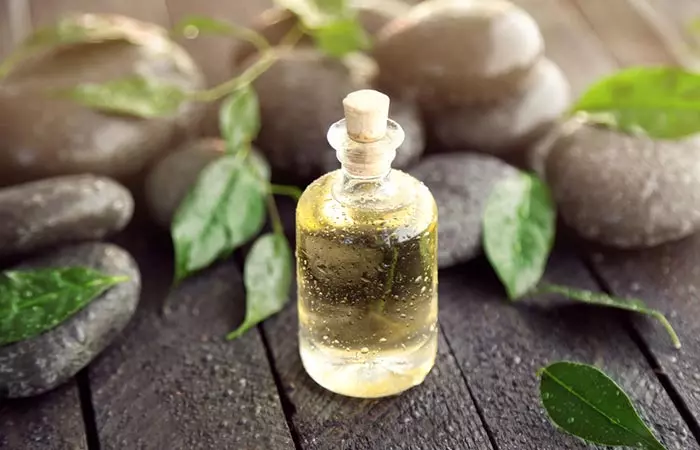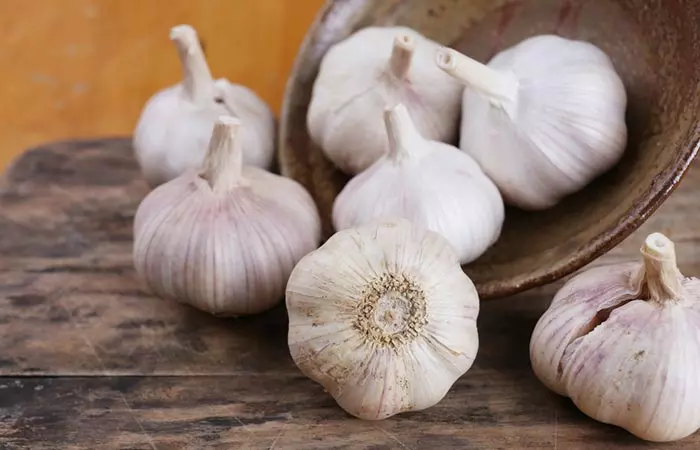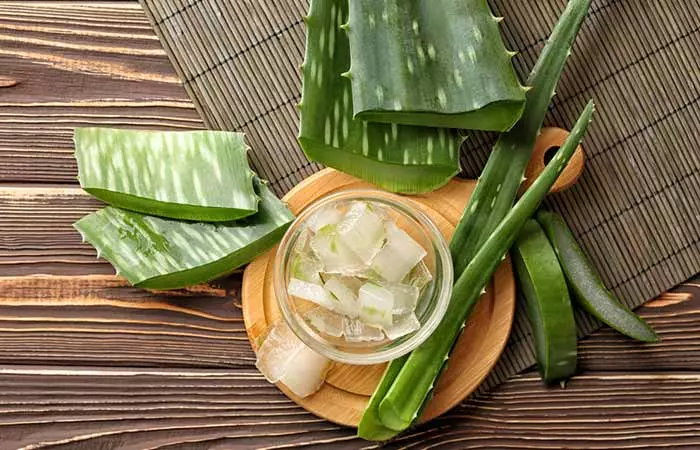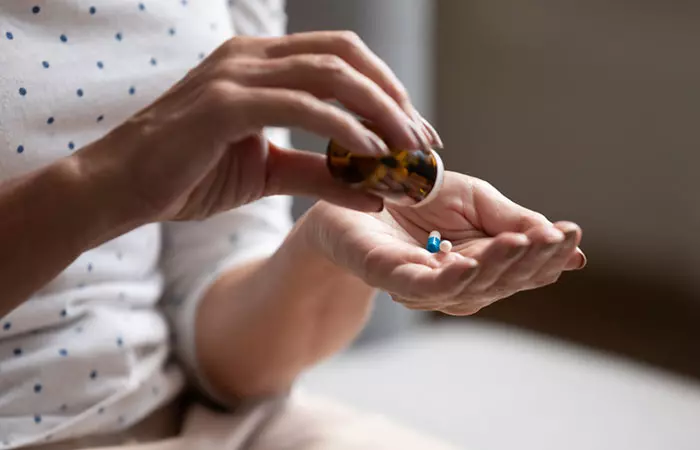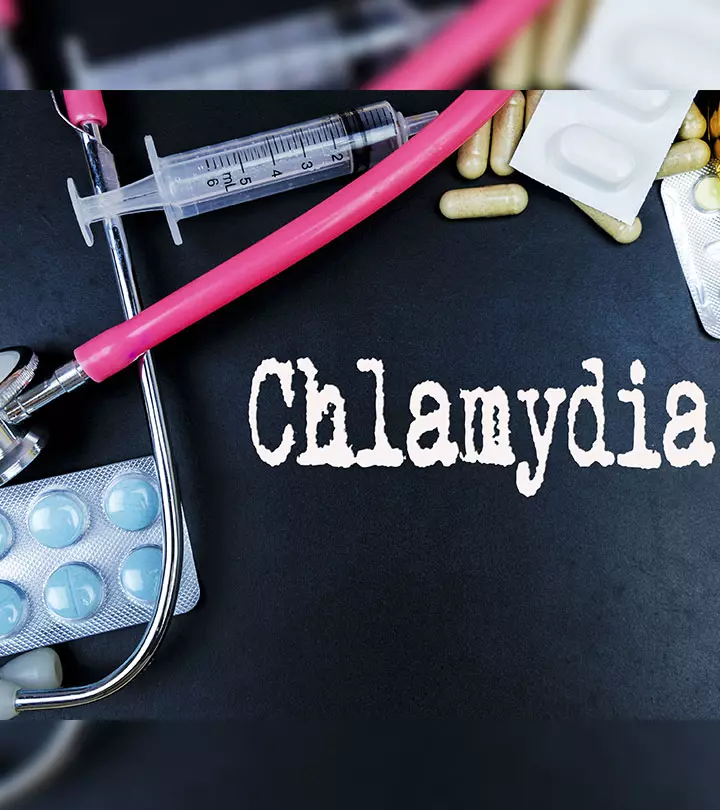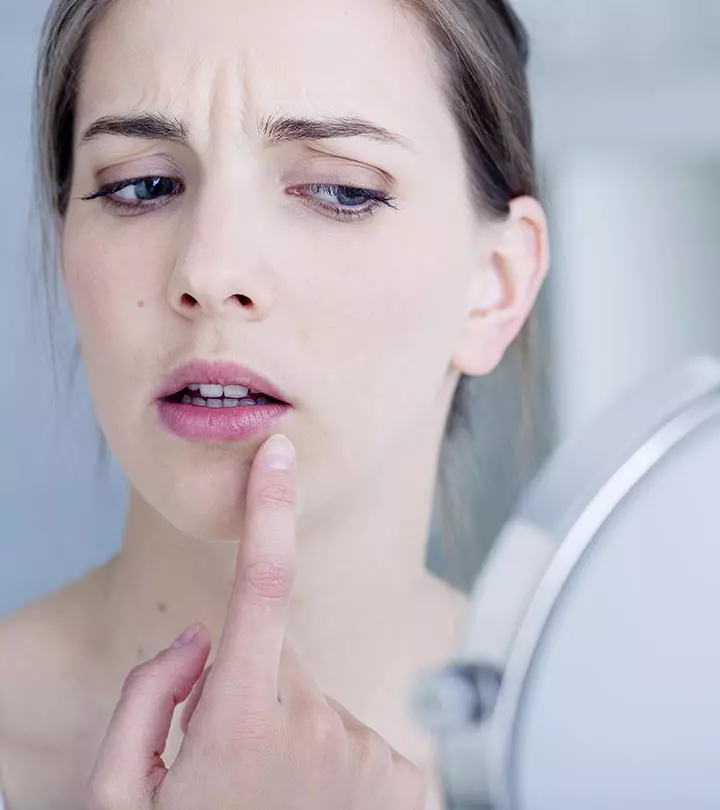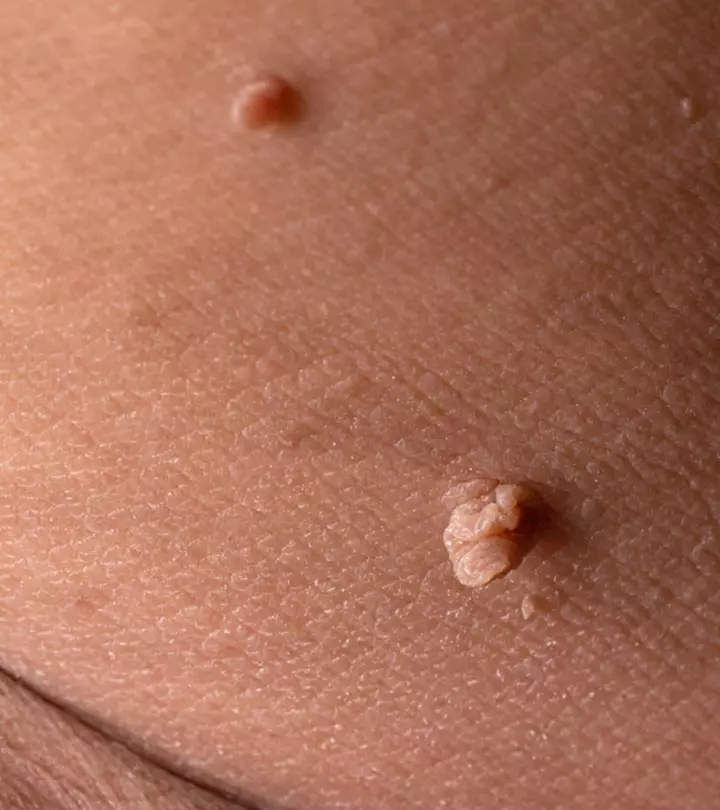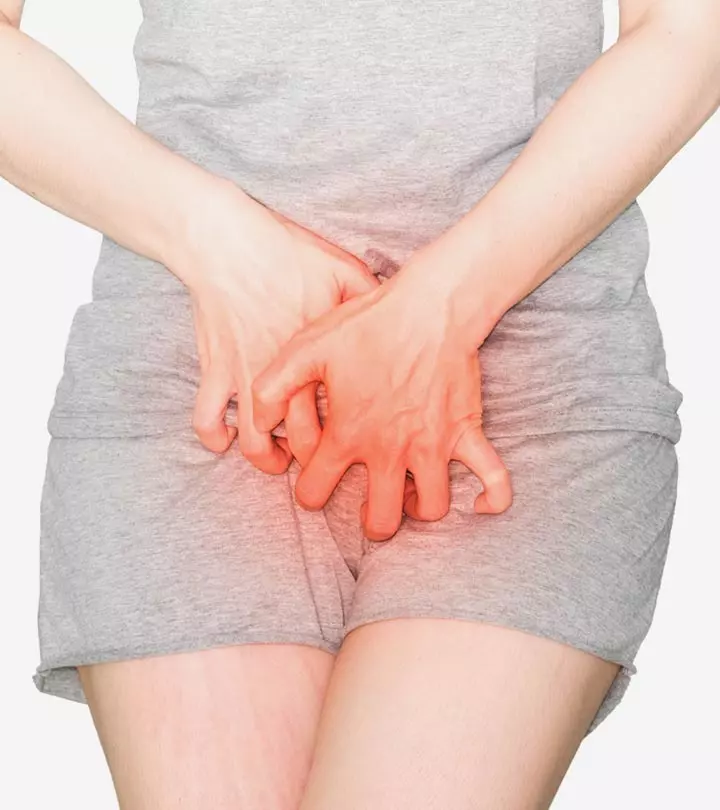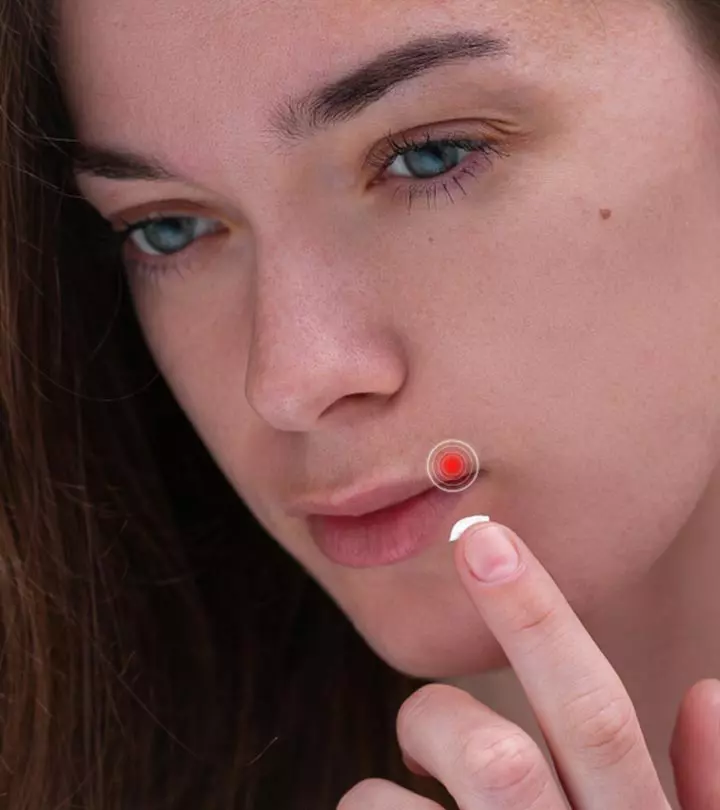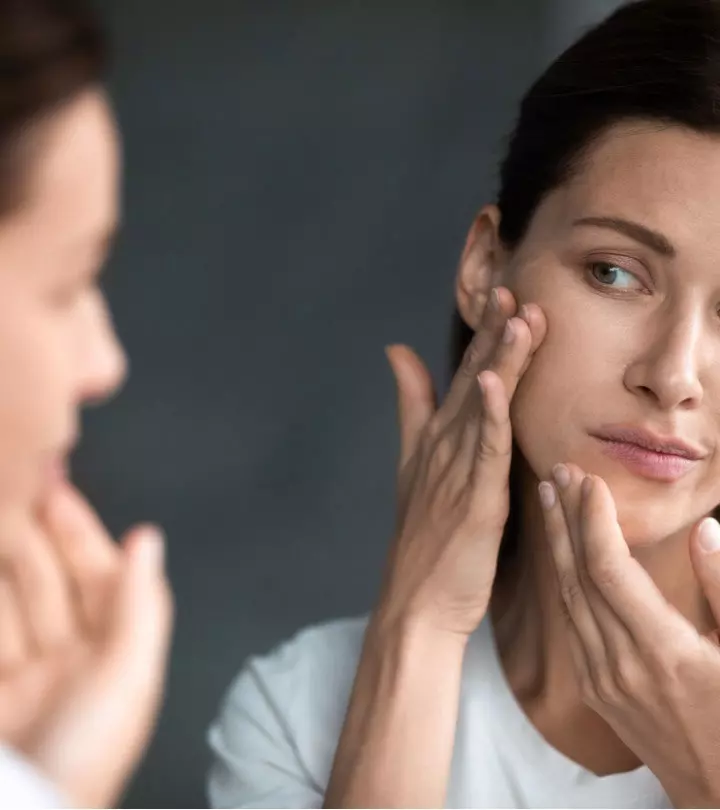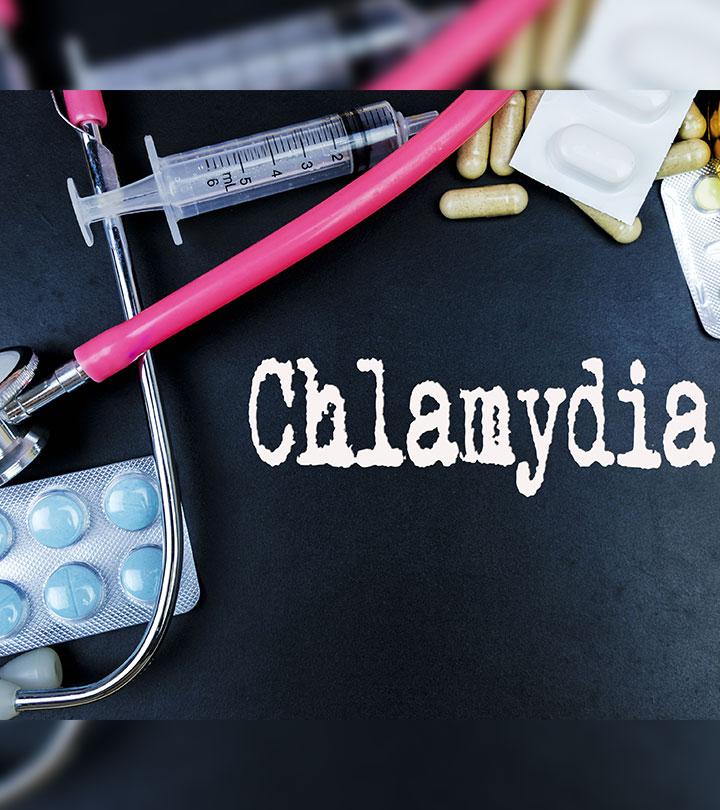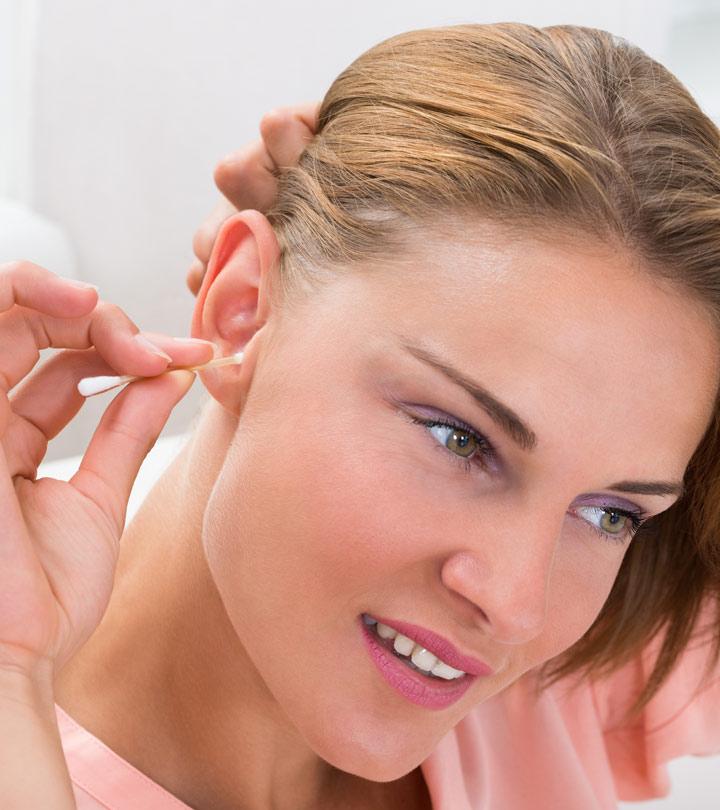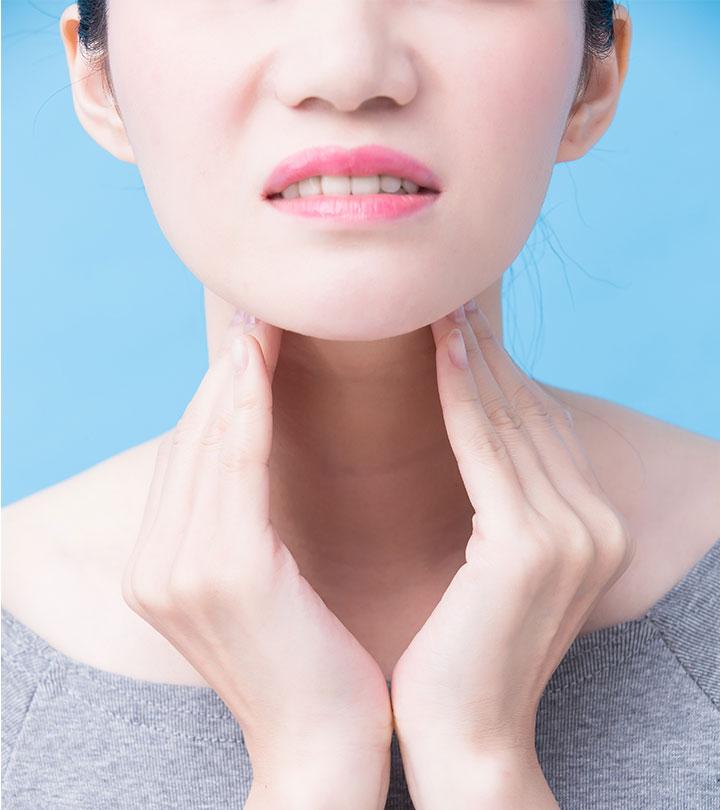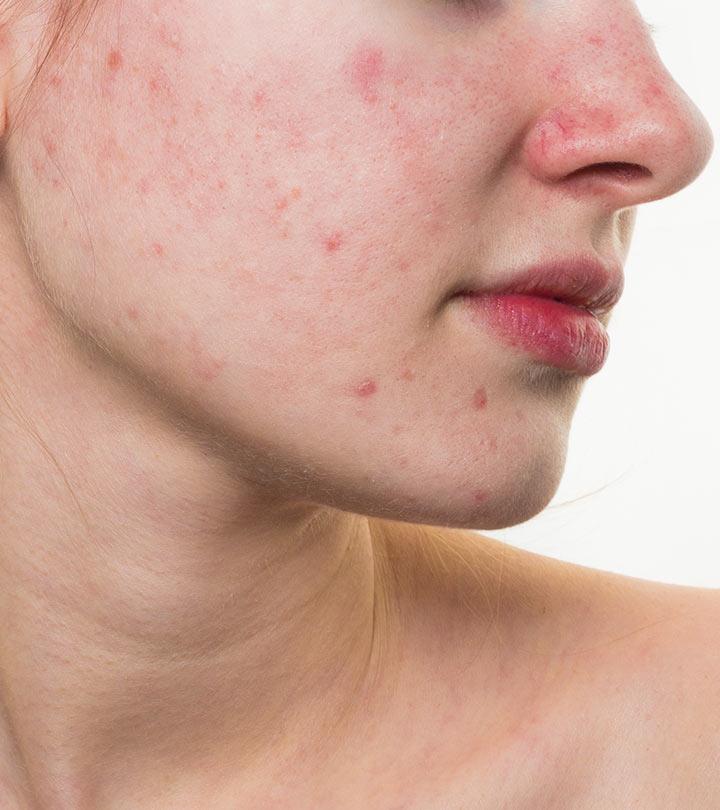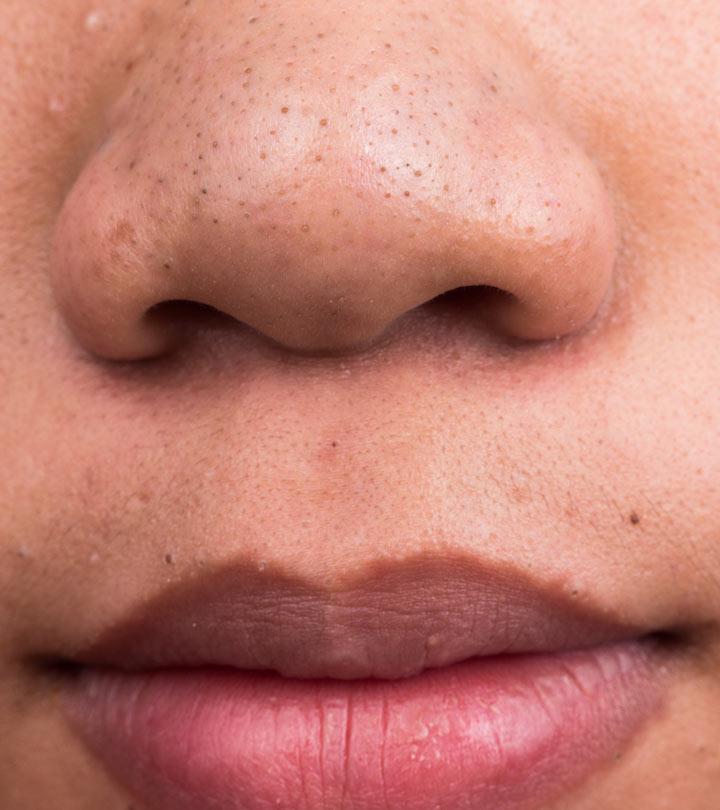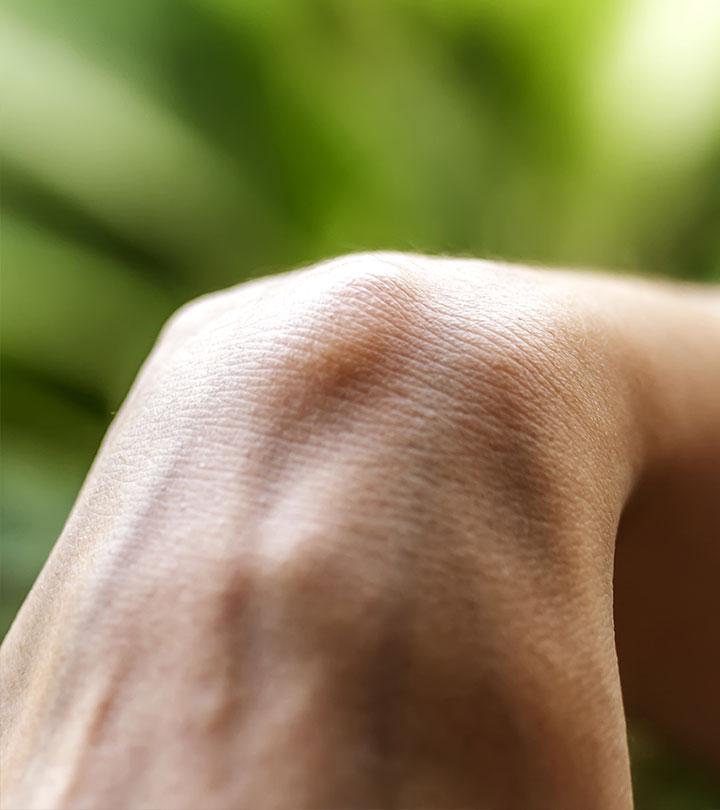Genital Warts – Causes, Home Remedies, & How To Prevent Them
Just the thought is painful! Try these natural methods and tips to reduce their occurrence.
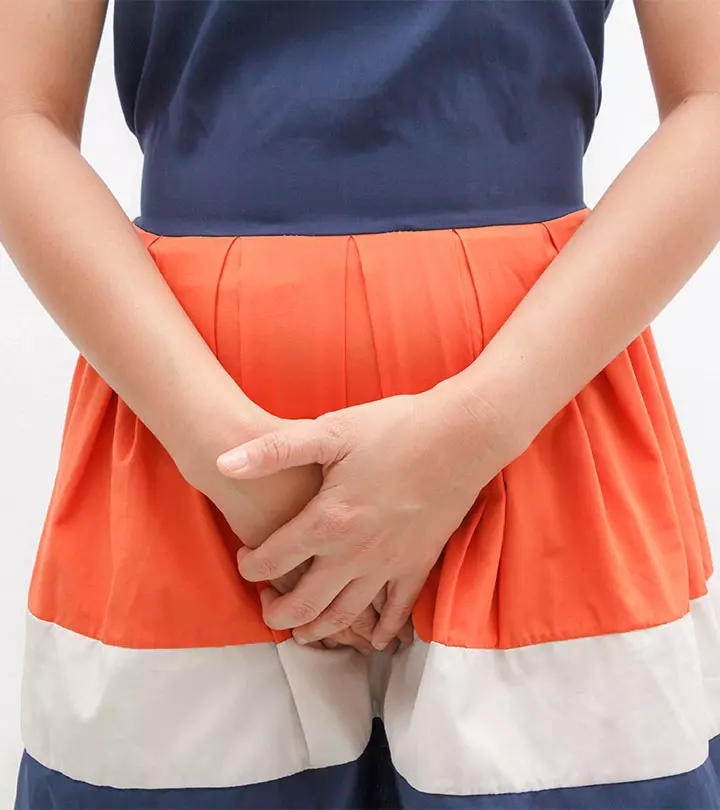
Image: Shutterstock
If you feel you’re the only one with genital warts, you’re not alone. Genital warts have become very common these days and can cause some pain and itchiness in your genitals. While traditional medical treatment is the best way to treat genital warts, there are a few natural remedies you can try to get rid of genital warts. In this article, we look at the causes, symptoms, and treatment options available for genital warts.
In This Article
What Are Genital Warts?
Genital warts, also known as condyloma, are soft warts or skin growths that appear on your genital area and can cause pain, discomfort, and itching. The warts are sexually transmitted and caused by some strains of the human papillomavirus (HPV).
HPV infections are the most common of all the sexually transmitted diseases (STDs). They may also lead to genital herpes, genial ulcers, genital sores, genital blisters, cervical cancer, and other diseases. Both men and women who are sexually active are vulnerable to the complications of HPV, like in the case of genital warts. HPV infections are especially threatening for women because some types can cause cancer of the cervix and vulva.
According to the Centers for Disease Control and Prevention (CDC), genital warts caused herpes before HPV vaccination affect 340,000 to 360,000 individuals annually. This means approximately 0.1% of sexually active adults in the United States have genital warts at any given time.
Genital warts caused by HPV aren’t uncommon, especially in the US. According to the International Agency On Research For Cancer (IARC), twelve HPV types are assumed to be carcinogenic for humans. However, HPV that causes genital warts are more likely to be non-carcinogenic. The prevalence of HPV incidences in the US is recorded in the graph below.
HPV Incidences For Persons Aged 15-59 Years
Source: Human Papillomavirus InfectionNote: STD is the most commonly used term for the collection of medical infections that are transmitted through sexual contact. However, STI is a sexually transmitted infection that may or may not develop into a full-blown STD.
Genital warts can be transmitted from one individual to another through sexual activities that involve skin-to-skin contact. These warts may also occur in other parts of the body that have been in contact with an affected area.
Such warts are not always visible to the human eye and even though they may be very small they are still infectious. The tops of such warts are usually smooth and slightly bumpy, giving them a cauliflower appearance.
The common signs and symptoms associated with genital warts are discussed below.
Signs And Symptoms
Genital warts can occur in clusters or as a single wart.
In females, genital warts most commonly occur:
- In the genital tract or anus (known as anal warts)
- In the genital region outside the vagina or anus
- On the cervix
In males, the warts usually appear on the:
- Penis
- Scrotum
- Thighs
- Groin
- Inside or in the area around the anus
Other than the appearance of warts, other symptoms that are noticed in the affected individuals are:
- Discharge from the vagina
- Bleeding
- Burning
- Itching
In some cases, genital warts can also spread and become enlarged. This may cause discomfort and also turn out to be quite painful.
Sometimes, such warts may also appear on the lips, mouth, throat, or tongue of those who have had oral sexual contact with an infected person.
Let us now look into the factors known to cause or increase your risk of developing genital warts.
Causes And Risk Factors
Genital warts are caused by the human papillomavirus virus (HPV). While there are 30-40 HPV strains known to affect the genitals, just a few of them actually cause genital warts.
HPV infections are highly contagious and can be easily transmitted via skin-to-skin contact. This is why they are considered to be sexually transmitted diseases (STDs). But, the human papillomavirus does not always lead to genital warts. In most cases, it’s an STI, and the virus goes away on its own without causing any significant health problems or complications.
It is also important to note that the HPV strains that cause genital warts are different from those that cause warts in other body parts. Also, warts cannot spread from an infected individual’s genitals to their hands or vice versa.
Some factors may also increase your risk of developing genital warts. They are:
- Age – Younger adults below 30 years of age are at a higher risk.
- Smoking tobacco
- Unprotected sex
- Weak immune system
- A history of child abuse
- An infected mother – Mothers can pass the virus to their children during childbirth or breastfeeding.
If you have genital warts and want to work with some natural ways to get rid of them, here are some home remedies that may help.
5 Home Remedies For Genital Warts
Annette Lode, a blogger, candidly shares her personal journey of overcoming recurrent genital warts through a combination of natural remedies. She cautions readers to consult a doctor, emphasizes individual reactions, and provides a list of home remedies that worked for her, “I didn’t find any miracle cure to stop my genital warts, and it wasn’t, at least for me, one particular remedy that worked.It was instead a combination of a number of methods which I had tried over the years. Obviously not everything worked, but when something did, I made a note of it and used that in conjunction with other treatments. Finally I was able to get rid of my genital warts, and to this day it’s been two years since I had a recurrence (i).”
Natural Ways To Get Rid Of Genital Warts
1. Tea Tree Oil
You Will Need
- 3 drops of tea tree oil
- 2 teaspoons of coconut oil
- Cotton swabs
What You Have To Do
- Add only three drops of tea tree oil to two teaspoons of coconut oil.
- Mix well and apply to the affected area using a cotton swab.
- Discard the swab.
- Leave the mixture on overnight.
How Often You Should Do This
You can do this one time daily.
Why This Work
Tea tree oil possesses antiviral properties. It was found to be effective in treating hand warts in a pediatric patient (1). Therefore, it may also help in treating genital warts.
Caution
Consult a doctor before you use tea tree oil as it can burn the skin.
2. Garlic
You Will Need
- 2-3 garlic cloves
- Cotton swabs
What You Have To Do
- Smash the garlic cloves to make a paste.
- Using a cotton swab, apply the mixture to the warts.
- Leave it on for 20-30 minutes before rinsing it off with water.
How Often You Should Do This
You can do this once daily.
Why This Work
Garlic possesses antiviral activities that can help inhibit the proliferation of virus-infected cells that leads to the development of warts, such as genital warts (2).
Caution
Garlic can also burn the skin, so be ready to remove the garlic mash before the time is up if the area starts to burn.
 Quick Tip
Quick Tip3. Green Tea Extract
You Will Need
Used green tea bags
What You Have To Do
- Put some used green tea bags aside and allow them to cool.
- Apply the tea bag to the affected area and leave it on for 15-20 minutes.
- Remove the tea bag and rinse the area with water.
- Discard the tea bag once you have used it.
- You can also buy any over-the-counter biological ointment that contains green tea extract for this purpose.
How Often You Should Do This
You can do this once daily.
Why This Work
Green tea extract contains catechins like polyphenon E that are found to be effective in the treatment of genital warts (3).
 Quick Tip
Quick Tip4. Aloe Vera
You Will Need
- 1-2 teaspoons of freshly extracted aloe vera gel
- Cotton swabs
What You Have To Do
- Take some aloe gel on a cotton swab.
- Apply it to the warts.
- Leave it on for 15-20 minutes before rinsing it off.
How Often You Should Do This
You can do this 1-2 times daily.
Why This Work
Aloe vera contains the antiviral malic acid (4). Malic acid is used in many formulations to treat recurring warts (5). Therefore, topical application of aloe vera may also be effective in treating genital warts.
5. Vitamins
Topical formulations that contain certain vitamins can also help in getting rid of genital warts.
A topical vitamin D3 derivate was found to be helpful in treating anogenital warts (6). Vitamin A was found to be effective when applied topically to common warts (7).
Oral vitamins that have been researched in the treatment of genital warts include Vitamin A, methylated folate, and methylated Vitamin B 12. Vitamin A, topical and oral, is the most well-researched remedy for genital warts.
Note: It is best to consult a doctor before using these topical formulations.
Here are some additional tips that can help prevent further outbreaks. These tips may also help prevent the infection in those who have never had an HPV infection.
Note: If you wish to combine these remedies, it is best to use one that has a tendency to burn (like tea tree oil or garlic) with a soothing remedy (like aloe or vitamin creams).
How To Prevent Genital Warts
- Use a latex condom or dental dam before any kind of sexual contact.
- Avoid having multiple sexual partners.
- Make sure that your sexual partner is not suffering from genital warts.
- Avoid using utensils that may have come in contact with an infectious wart.
Note: A dental dam is a thin, flexible piece of latex that can protect against direct mouth-to-genital or mouth-to-anus contact during oral sex.
Although there are various ways to treat genital warts at home, doctors recommend getting it medically treated and also getting vaccinated. Learn more about it in the following section.
Vaccination For Genital Warts
HPV vaccines are essential in protecting against genital warts and other HPV infections that may potentially lead to cancer. The Centers for Disease Control and Prevention (CDC) recommends children between 11-12 years to get vaccinated, although it can be administered at 9 years. It is most effective for those under 26 years as most unvaccinated people over 27 might already have been exposed to the virus. It is not recommended for people allergic to the vaccine ingredients or yeast and pregnant women. The vaccine’s effectiveness has been recorded to last for at least 12 years (8).
Infographic: What To Avoid When You Have Genital Warts
Genital warts are painful and uncomfortable. And without proper care, they may even spread. So while you try the home remedies to manage genital warts, you must also focus on certain dos and don’ts to speed up healing and avoid the risk of spreading.
Check the infographic below to learn the things you should avoid if you have genital warts. Illustration: StyleCraze Design Team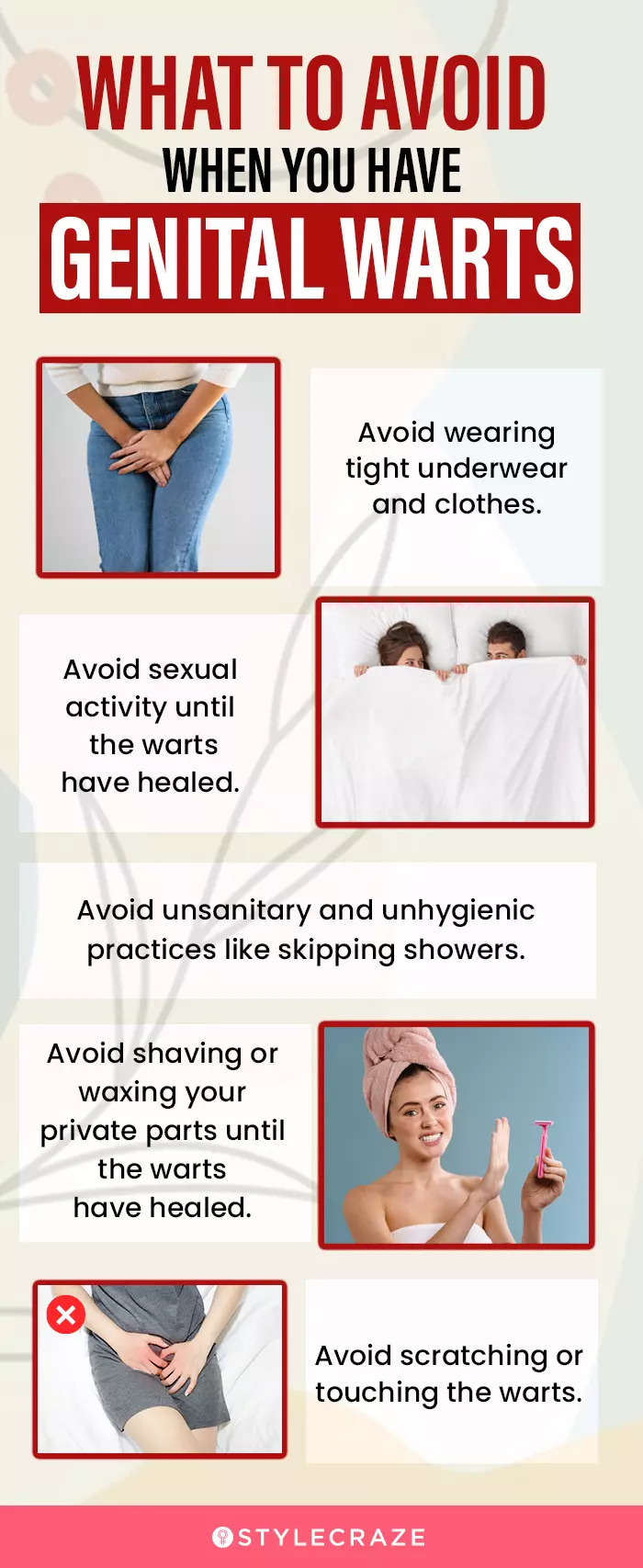
Genital warts are painful and itchy, and cause discomfort, bleeding, and burning. They are caused by the human papillomavirus (HPV) and can be transmitted from one person to another through sexual activities. However, the home remedies listed above, including tea tree oil, garlic, green tea extract, aloe vera, etc., can help you get rid of genital warts through their effective antiviral properties. One must not leave these warts untreated as they may lead to certain cancers, especially cervical cancer. Consult a doctor immediately if these home remedies do not deliver desired results.
Did you find this article helpful? Don’t forget to tell us in the comments below.
Frequently Asked Questions
How long does it take to get genital warts?
Genital warts may not appear right after you have been exposed to the virus. It may take anywhere between 3 weeks to 18 months for the virus to result in visible symptoms like genital warts. However, even if it is invisible, it can be infectious.
What will happen if genital warts are left untreated?
Genital warts may either disappear, remain same in size, or grow in size as well as numbers if left untreated. This can make it quite uncomfortable for the affected individual. It also increases the risk of the infection being passed on to others.
Can genital warts kill you?
While genital warts may increase your risk of developing other diseases, they will not kill you.
Is there a test for genital warts?
Your doctor may either look at the appearance of the warts and conclude that you have genital warts or go ahead with a biopsy test to find out which strain of HPV is causing the warts. A pap test and acetic acid test may also be carried out to diagnose genital warts.
What do genital warts look like?
The appearance of genital warts is often compared to that of little pieces of cauliflower. These bumps are either skin-colored or slightly darker and may occur as a single wart or in clusters.
Are all genital warts STDs?
Yes, all genital warts are sexually transmitted and caused by certain strains of the human papillomavirus (HPV).
What can be mistaken for genital warts?
Since moles, genital skin tags, or penile pearly papules look similar to genital warts, they can be easily mistaken for the latter.
How long do genital warts last?
It depends on the course of treatment, your immunity, and the presence of HPV in your body. Usually, it may last anywhere from a few months to close to 2 years.
What makes genital warts worse?
Cuts, scratches, repeated irritation, or pressure may worsen genital warts. Avoid using hair removal techniques like waxing or shaving to prevent any abrasions near warts.
Can you get genital warts from a toilet seat?
Possibly not. The causative virus spreads through skin-to-skin contact.
Key Takeaways
- Genital warts usually spread through sexual contact with an infected person.
- Apply a few drops of diluted tea tree oil or aloe vera gel over the warts to treat them naturally. Other home remedies include garlic, apple cider vinegar and topical vitamin formulations.
- To prevent the disease from spreading, use a latex condom or completely avoid sexual activities till they are healed.
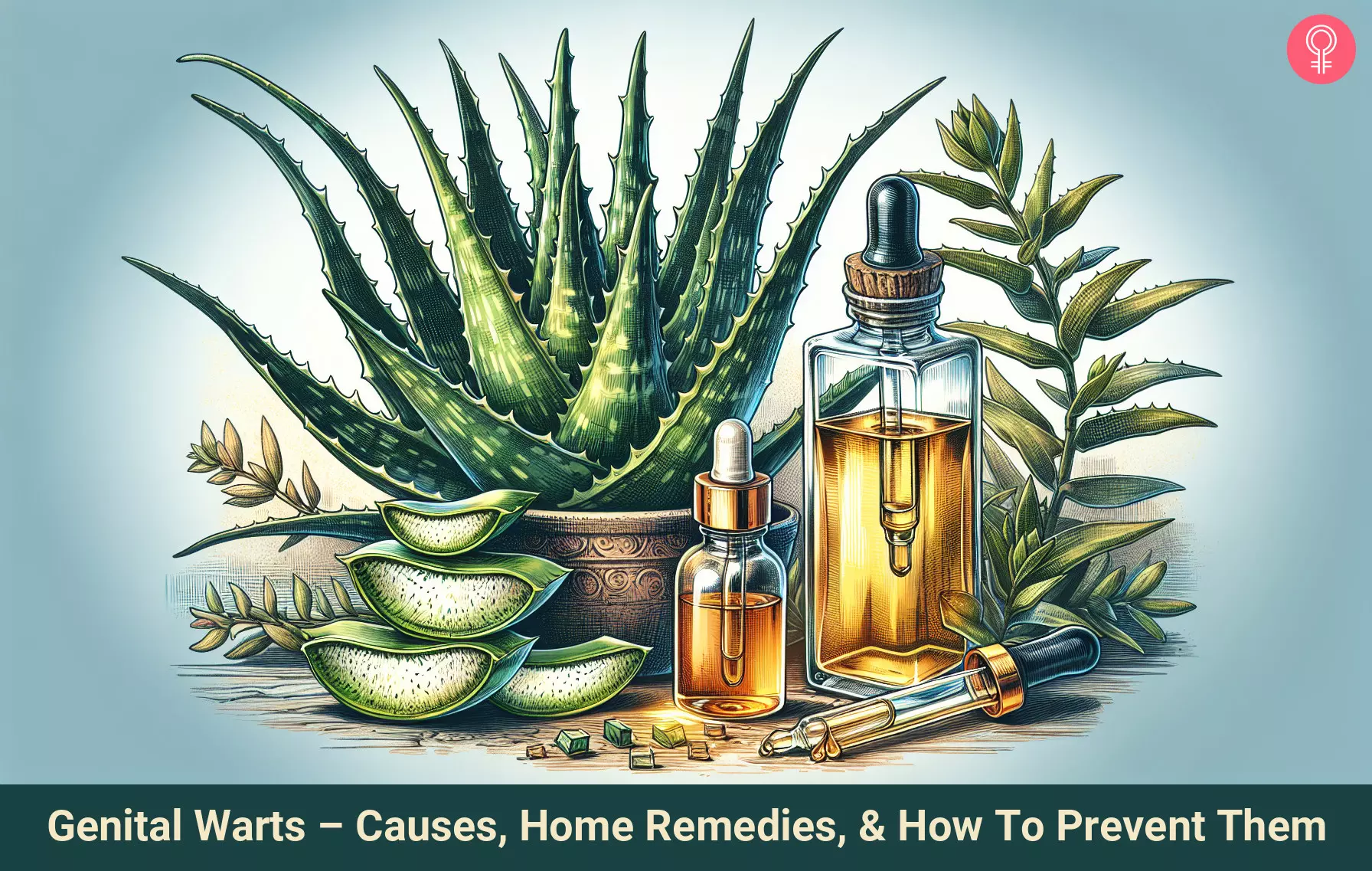
Image: Dall·E/StyleCraze Design Team
Learn about genital warts – what causes them, who is at risk, signs and symptoms, and how to treat them. Check out the video to get the facts and stay informed.
Personal Experience: Source
StyleCraze's articles are interwoven with authentic personal narratives that provide depth and resonance to our content. Below are the sources of the personal accounts referenced in this article.
i. Curing Your Genital Warts Naturallyhttps://medium.com/@lostsurvivalways/curing-your-genital-warts-naturally-b499a314dbb
References
Articles on StyleCraze are backed by verified information from peer-reviewed and academic research papers, reputed organizations, research institutions, and medical associations to ensure accuracy and relevance. Read our editorial policy to learn more.
- “Successful topical treatment of hand warts in a paediatric patient with tea tree oil (Melaleuca alternifolia).” Complementary Therapies in Clinical Practice, US National Library of Medicine.
- “An Armamentarium of Wart Treatments” Clinical Medicine & Research, US National Library of Medicine.
- “Efficacy and Tolerability of Topical Green Tea Extract (Polyphenon E) Application in a “Therapy-Resistant” Plantar Wart” Case Reports in Dermatology, US National Library of Medicine.
- “Composition and Applications of Aloe vera Leaf Gel” Molecules, US National Library of Medicine.
- “Topical malic acid in combination with citric acid: an option to treat recalcitrant warts” Wiley Online Library.
- “Successful Treatment of Anogenital Wart with a Topical Vitamin D3 Derivative in an Infant” Case Reports in Dermatology, US National Library of Medicine.
- “Topical vitamin A treatment of recalcitrant common warts” Virology Journal, US National Library of Medicine.
- ““Human Papillomavirus (HPV) Vaccination: What Everyone Should Know” The Centers for Disease Control and Prevention.
Read full bio of Dr. Zeel Gandhi
Read full bio of Ramona Sinha
Read full bio of Monomita Chakraborty






